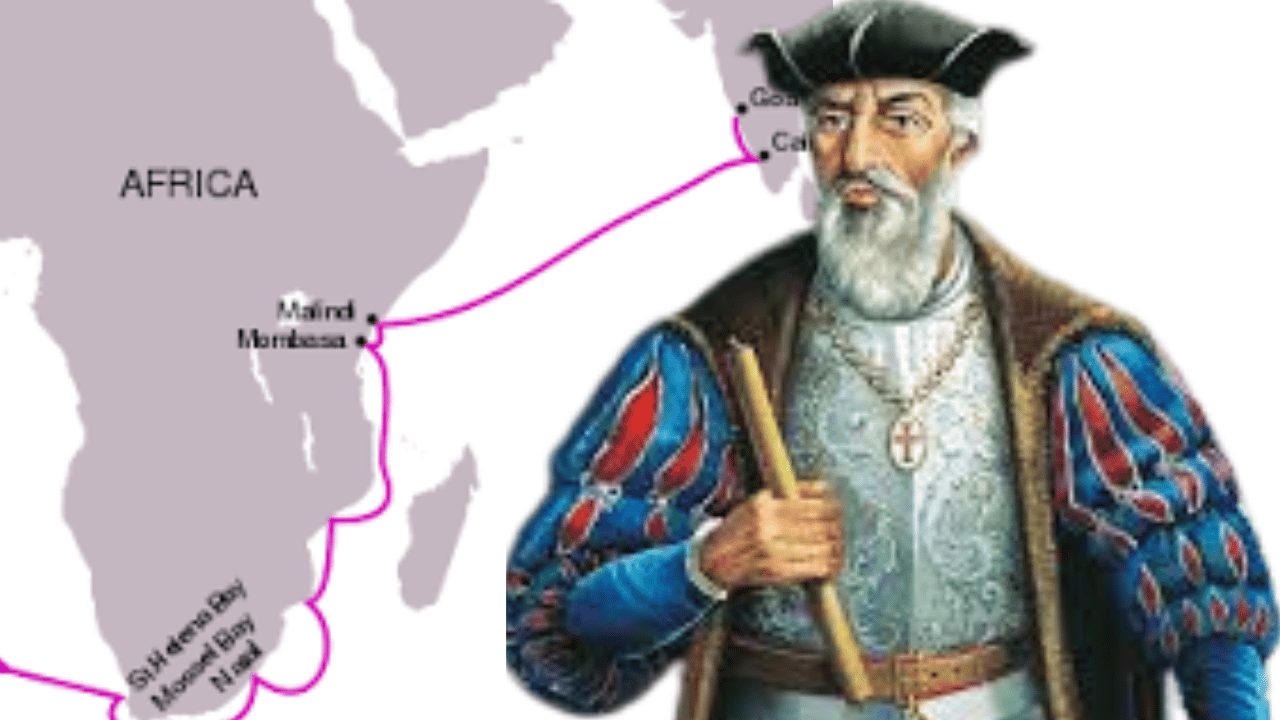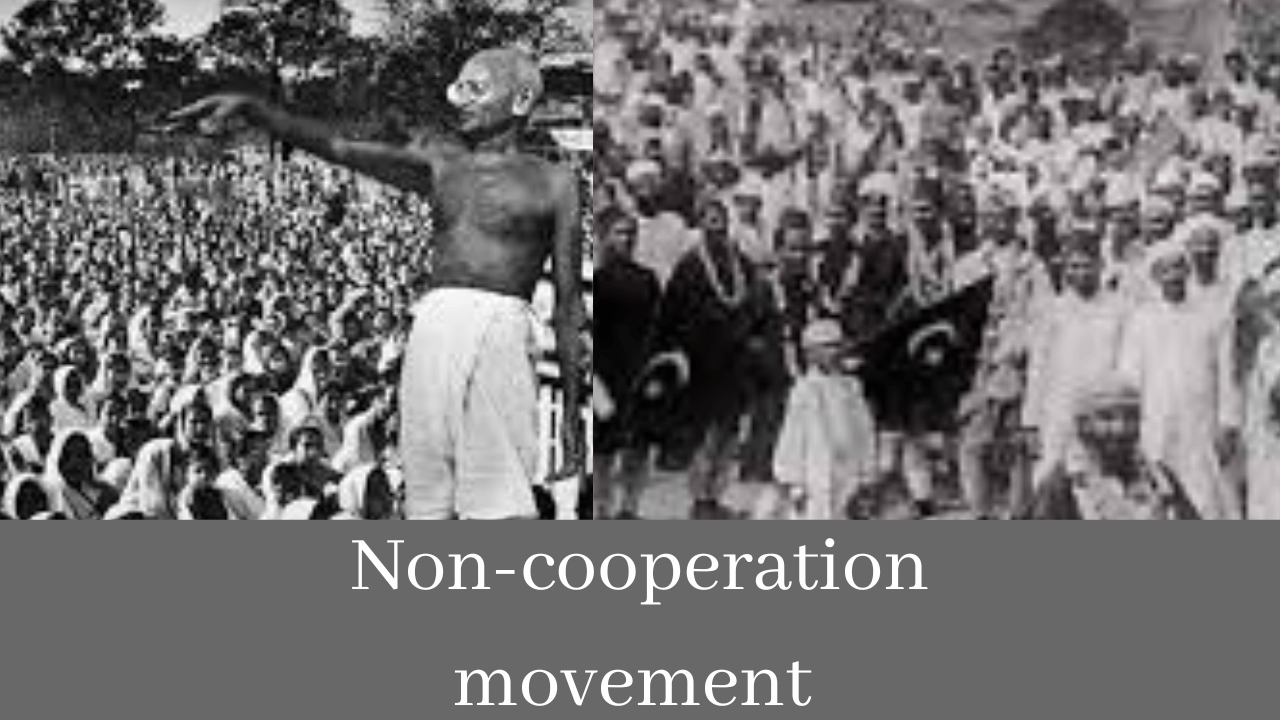Vasco da Gama was a Portuguese explorer and navigator whose life span was from 1469 to 1524. He is well known for being the first European to travel directly by sea from Europe to Asia, reaching India. In 1497–1499 and 1524, he made two trips to India and played a significant role in the establishment of Portuguese colonies and trade in the area. Vasco da Gama’s expeditions had a significant influence on global trade and helped open Asia to future European discovery and colonialism.
In the year 1469, Vasco da Gama was born in Sines, Portugal. To build trade routes and establish colonies in Asia, Portugal went through a period of discovery and growth during his time. Finding a maritime route was considered a method to get over these difficulties because the current overland routes to Asia at the time were protracted, challenging, and under Ottoman Empire control.
King Manuel I of Portugal chose Vasco da Gama to lead an expedition to India in 1497. He arrived in Calicut, India, on May 20, 1498, more than a year after leaving on four ships. His visit established a direct maritime route connecting Europe and Asia and was the first instance of a European traveling to India by sea.
Vasco da Gama’s journey was noteworthy not only because it brought him to India but also because it affected Portuguese trade. Portugal was able to create a commercial monopoly with India and other regions of Asia by building a maritime route to Asia, which greatly increased the country’s riches.
His expedition also opened up Asia to more Portuguese exploration and colonialism. Vasco da Gama’s expeditions, which established commercial routes between Europe, Africa, and Asia and opened the door for more European discovery and colonialism, are generally seen as a turning point in world history.
Importance of Gama’s voyages to India
Vasco da Gama made numerous important trips to India in the late 15th and early 16th centuries. They opened a direct maritime path from Europe to Asia, avoiding the Ottoman Empire’s regulated overland routes, and they also represented the first time a European had reached India by sea. As a result, Portugal was able to create a trade monopoly with India and other Asian nations, which brought the nation considerable money and aided in establishing Portugal as a significant naval force.
Second, Vasco da Gama’s explorations had a long-lasting effect on global commerce. By constructing a maritime route to Asia, they opened up new and crucial connections between Europe, Africa, and Asia by facilitating the flow of products and ideas across these continents.
This had a significant impact on the economy and cultures of these areas and helped pave the way for more exploration and colonization of Asia by Europeans.
Last but not least, Vasco da Gama’s expeditions are regarded as a crucial turning point in world history. They marked the start of European exploration and colonization of Asia and contributed to the establishment of a globalized economy. The significance of Vasco da Gama’s expeditions in the history of the globe has not faded, and they are still being researched and remembered.
Establishment of Portuguese trade in India
Portuguese trade in India began in 1498 with Vasco da Gama’s landing in Calicut, India. Before this, the Ottoman Empire dominated the overland routes to Asia, making it challenging for Europeans to develop commerce with the region. However, Portugal was able to get through these challenges and create a trading monopoly with the region once a direct maritime route to India was opened. Vasco da Gama quickly forged economic ties with the king of Calicut after his arrival, and Portuguese merchants soon started to arrive in India.
They constructed a factory in Calicut, and very quickly they expanded their trading network to include Cochin, Goa, and Diu in India. A wide range of products, including textiles, spices, and other luxuries that were in high demand in Europe, were shipped to India by Portuguese traders.
Both Portugal and India were significantly impacted by the beginning of Portuguese commerce in India. It provided Portugal with considerable wealth and aided in the development of Portugal as a significant naval power. As the Portuguese created colonies and gained authority over portions of the nation, they had a lasting influence on the economics, cultural landscape, and political landscape of India.
Vasco da Gama’s establishment of Portuguese trade in India had a profound and far-reaching impact on both the histories of Portugal and India.
Significance of opening a sea route to Asia
It is impossible to exaggerate the importance of providing a maritime connection to Asia. Before Vasco da Gama’s expedition, the Ottoman Empire ruled the overland routes to Asia, making it challenging for Europeans to develop commerce with the region. Vasco da Gama’s expeditions made it possible for Europeans to get beyond these barriers and start trading with Asia, which had many significant repercussions.
First of all, it made it possible for Portugal to create a trade monopoly with India and other Asian nations, which brought the nation immense money and helped it become a significant naval force.
Second, the establishment of a maritime route to Asia made it easier for products and ideas to travel between Europe, Africa, and Asia, creating a novel and important connection between these continents. This had a significant impact on the economies and cultures of these areas and helped pave the way for more exploration and colonization of Asia by Europeans.
In terms of world history, the importance of creating a maritime route to Asia cannot be overemphasized. It marked the beginning of European exploration and colonization of Asia and helped to establish a globalized economy. The establishment of a maritime route to Asia paved the way for future European colonization of the region and is still having an impact on the globe today.
Conclusion
Vasco da Gama was a significant figure in Indian history since his expeditions signaled the start of Portuguese commerce and colonialism in India. It is impossible to overestimate the importance of creating a direct sea route to Asia since it allowed Portugal to create a commercial monopoly with India and other regions of Asia, which brought the nation immense wealth and helped Portugal become a significant naval power.
Vasco da Gama’s journeys also helped to forge new and important connections between Europe, Africa, and Asia by facilitating the flow of products and ideas across these continents.
In addition to having a long-lasting effect on India’s economy and cultural landscape, the Portuguese colonizers and rulers of some regions of the nation helped to shape the political environment.
In conclusion, Vasco da Gama’s explorations and the effects they had are still researched and recognized as a key turning point in world history. The founding of Portuguese trade in India and the introduction of a sea route to Asia contributed to laying the groundwork for the globalization of trade and commerce and influenced the histories of both Portugal and India. Vasco da Gama will always be recognized for his contributions to world history and his lasting influence.




